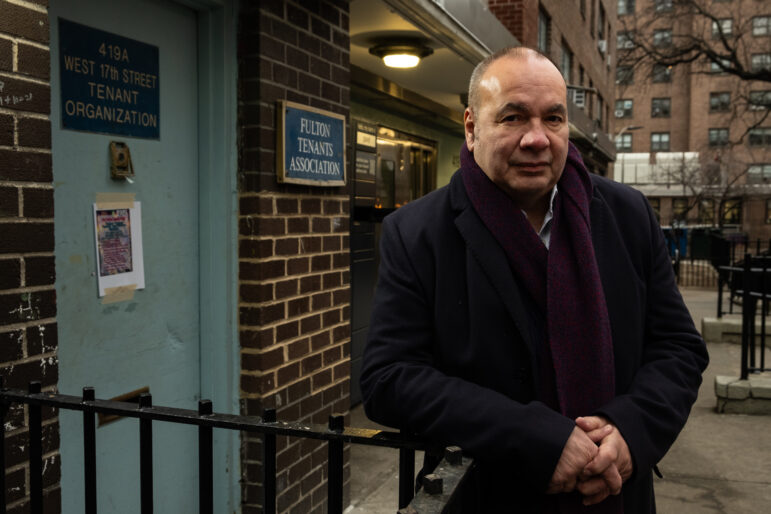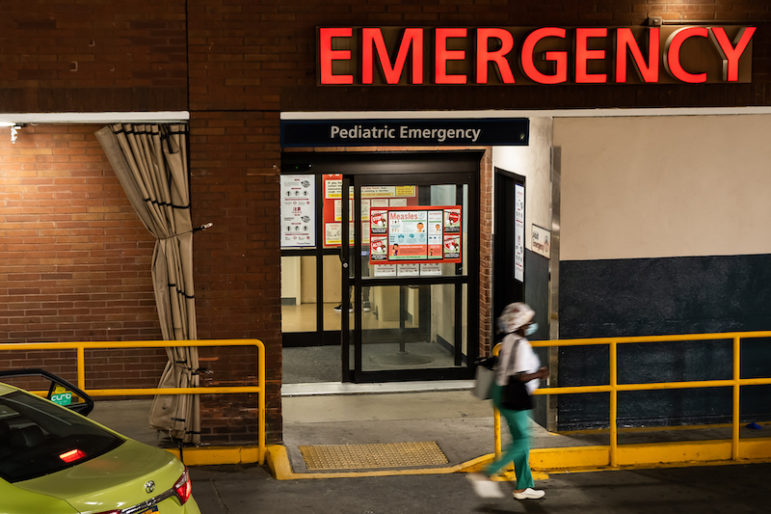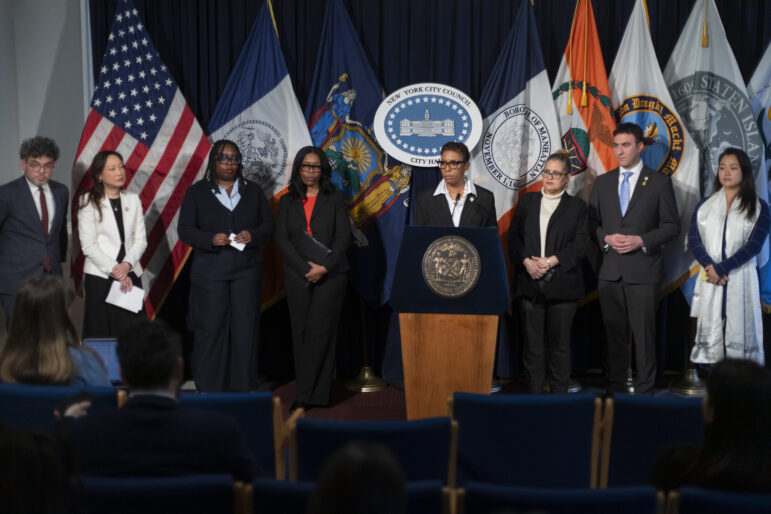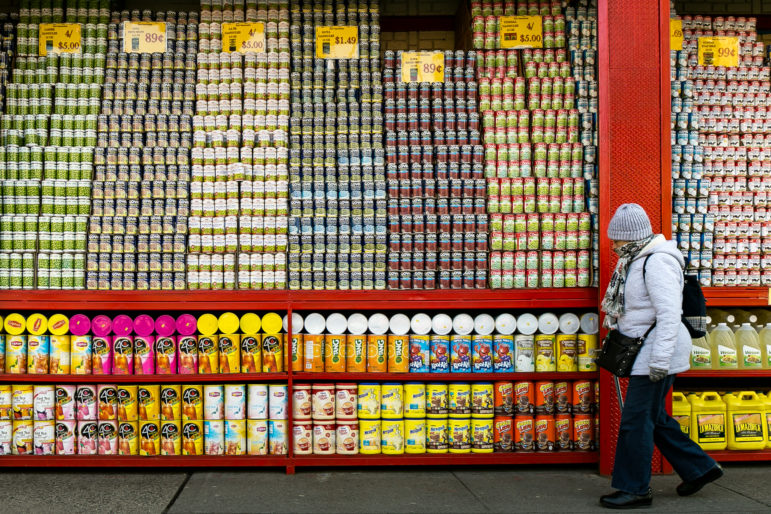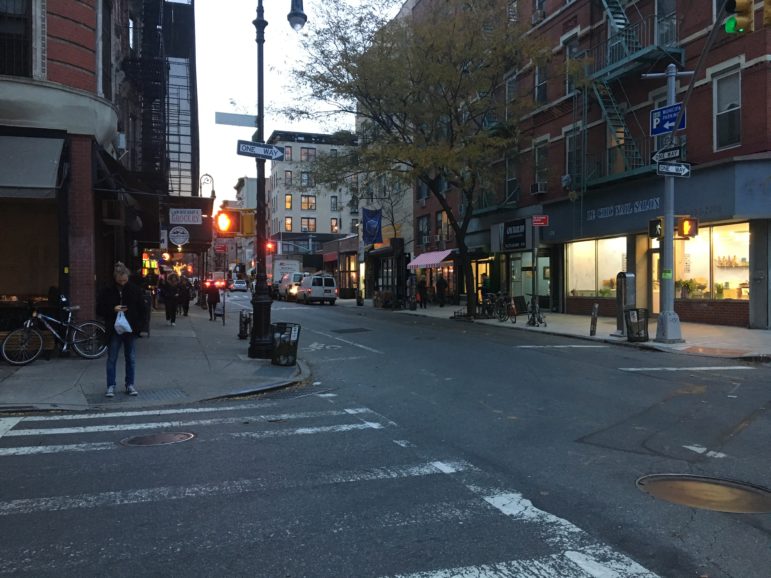
Janaki Chadha
LES residents say the accumulation of drinking establishments has made it hard to accept even those new establishments that promise to be good neighbors.
When Andrea Cohen decided to open a new outpost of her West Village restaurant, Bongo, on a lively part of Rivington Street on the Lower East Side, she didn’t expect to run into so much trouble obtaining a liquor license.
After all, she had two decades of experience in the industry, including managing liquor licenses at locations in the West Village and Chelsea. And she wasn’t opening a nightclub or music venue, so there wouldn’t be noisy crowds or long wait lines wrapping around the block.
But when she went before the State Liquor Authority licensing committee of Community Board 3, which covers the Lower East Side and the East Village, she felt there was nothing she could say that would persuade committee members to approve another full liquor license in the area.
“I am a good business owner,” Cohen, 59, says. “But they don’t even give you a chance.”
The Lower East Side might be one of New York’s most vibrant areas for nightlife, but for businesses looking to start selling liquor in the neighborhood, that’s a liability. Cohen’s Rivington Street spot is smack in the middle what residents have termed “Hell Square”—a 24-block area below East Houston Street with over 100 full liquor licenses, according to the New York State Liquor Authority.
And as the city works to support the nightlife industry through initiatives like the new Office of Nightlife, Lower East Side residents and community board members worry that push will only exacerbate the problems that come along with nightlife saturation, including excessive noise and crowds. In their view, limiting new liquor licenses is the first, though at times futile, line of defense.
Clint Smeltzer, vice-chair of the community board’s nine-member SLA committee, says the committee has had numerous past experiences with operators who say they plan to run quieter establishments and close earlier in the night, but stay open past the hours they promised, cut back on dinner service or start holding live music performances.
The committee, made up of unsalaried members appointed by the borough president, reviews around 20 applications per month. Its decisions then go to the New York State Liquor Authority, which has the final say on whether to approve or deny an application.
Smeltzer says once a liquor license is active at a location, taking it away for disciplinary reasons is a difficult process.
“It’s rare for a license to be removed, and the state is very reluctant to remove them,” Smeltzer says. “So we’re very cautious with new licenses.”
Diem Boyd, founder of the LES Dwellers Block Association, was one of the many residents who spoke out against Cohen’s liquor license application at the Nov. 15 committee hearing.
“The problem is the accumulation—children walk to school in the morning amid broken bottles, vomit on the sidewalks,” she tells City Limits. “This area has been a dumping ground for people who have no investment in the neighborhood. There’s a point where it becomes unlivable.”
But the power of the board’s committee, and the residents who try to influence it, only goes so far. The committee’s role is purely advisory, and the New York State Liquor Authority does not always vote according to the community board’s recommendations.
Richard Ocejo, a CUNY sociology professor and author of the 2014 book “Upscaling Downtown” says the State Liquor Authority has often been more lenient than the community board when evaluating licenses, often because of economic development considerations.
“The state doesn’t have to pay attention to the community board, and frequently they don’t,” he says.
In a recent example, the liquor authority on Nov. 21 approved a full liquor license application for an East Village restaurant, Post, even though the community board’s SLA committee had refused it in May, citing saturation.
Cohen is currently unsure what her next steps are, but she says she needs a liquor license in order to open the restaurant, given the competition from spots that serve cocktails. The margins on liquor are high, she says, and with steep rents in the neighborhood, the revenue is crucial.
Emic Davidov, who has run neighborhood restaurant, Cheese Grille, for the past three years, agrees. The establishment has only a wine and beer license—another type of license also regulated by the State Liquor Authority.
Davidov applied to the community board for a full liquor license in October, and was denied. He is managing for now, he says, but in the long run worries about his ability to survive in the area. Since the restaurant opened, his rent has gone up from $8,000 to $12,000 per month.
“People go out in that neighborhood, they want to have a cocktail. So you want to be in the mix,” he says. “Without a full liquor, it’s really hard to make it.”
He says he’ll probably go back to the community board in a few years.
“It’s a bit of a frustrating process, but I get where they’re coming from,” he says. “I feel like they just have to get to know me a little better.”


